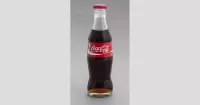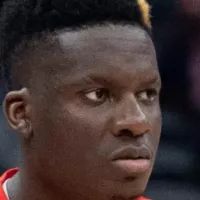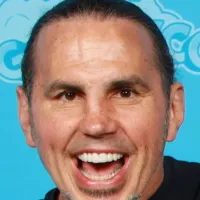Discover the career path of Wayne Gretzky, from the first major opportunity to industry-changing achievements.
Wayne Gretzky, nicknamed "The Great One," is widely considered the greatest ice hockey player of all time. He played 20 seasons in the NHL, from 1979 to 1999, for four teams. Gretzky holds numerous NHL records, including leading career point scorer and assist producer. He is the only NHL player to surpass 200 points in a single season, achieving this feat four times. He also recorded over 100 points in 15 professional seasons. Upon his retirement in 1999, Gretzky held 61 NHL records.
October 1971: Profile in the Toronto Telegram
In October 1971, Wayne Gretzky's hockey play was profiled by John Iaboni in the Toronto Telegram.
1972: Summit Series
In 1972, the Summit Series took place, influencing Gretzky's style of play and the NHL in general by showcasing a more team-oriented approach by the Soviets.
1974: Quebec International Pee-Wee Hockey Tournament
In 1974, Wayne Gretzky scored 26 points while playing for Brantford in the Quebec International Pee-Wee Hockey Tournament.
1977: Drafted by Sault Ste. Marie Greyhounds
In 1977, Wayne Gretzky was drafted by the Sault Ste. Marie Greyhounds of the Ontario Major Junior Hockey League, and began wearing the number 99 on his jersey.
June 12, 1978: Signed with Indianapolis Racers
On June 12, 1978, Wayne Gretzky, at age 17, signed a seven-year personal services contract with the Indianapolis Racers of the World Hockey Association, worth US$1.75 million.
1978: Top Scorer in World Junior Championships
In 1978, Wayne Gretzky became the top scorer in the World Junior Championships.
1978: World Junior Championships
In 1978, at age 16, Wayne Gretzky made his first international appearance at the World Junior Championships in Montreal, Quebec. Despite initial skepticism, he led the tournament in scoring with 17 points, earning All-Star Team and Best Forward honors. Canada finished with the bronze medal.
January 26, 1979: Signed 10-Year Personal Services Contract with Oilers
On January 26, 1979, his 18th birthday, Wayne Gretzky signed a ten-year personal services contract with the Edmonton Oilers, worth CA$3 million, and finished third in the league in scoring, capturing the Lou Kaplan Trophy as rookie of the year.
1979: Hart Memorial Trophy and Scoring Lead Tie
During his first NHL season in 1979-80, Wayne Gretzky was awarded the Hart Memorial Trophy as the NHL's Most Valuable Player and tied for the scoring lead with Marcel Dionne, with 137 points. Although Gretzky played 79 games to Dionne's 80, Dionne was awarded the Art Ross Trophy because he had scored more goals (53 to 51).
1979: Appearance in the WHA All-Star Game
In 1979, Wayne Gretzky appeared in the WHA All-Star Game, playing on a line with Gordie Howe and Mark Howe. The WHA All-Stars won the three-game series against Dynamo Moscow.
1979: NHL Debut
In 1979, Wayne Gretzky debuted in the NHL. Despite concerns that he was too small and slow, he tied for first place in scoring and won the Hart Trophy, demonstrating his value to the league.
1979: WHA Folds and Oilers Join NHL
In 1979, the World Hockey Association (WHA) folded and the Edmonton Oilers, along with three other teams, joined the National Hockey League (NHL) as expansion franchises, with Gretzky being allowed to stay on the Oilers roster despite the NHL's minimum age rule.
1980: Lady Byng Trophy
In 1980, Gretzky was presented with the Lady Byng Trophy, an award that recognizes sportsmanship and performance in the NHL.
December 30, 1981: Scored 50 Goals in 39 Games
On December 30, 1981, Wayne Gretzky scored his 50th goal of the season in only 39 games, breaking the record held by Maurice "Rocket" Richard, in a 7-5 win against the Philadelphia Flyers.
1981: Canada Cup Debut
In 1981, Wayne Gretzky debuted with the Canadian national team at the Canada Cup. He led the tournament in scoring with 12 points, but Canada lost the final against the Soviet Union.
1981: Single Season Scoring Record
In 1981, Wayne Gretzky set the single-season scoring record. In his second year in the league he racked up 164 points.
1981: Art Ross Trophy and Stanley Cup Playoffs Record
In 1981, Wayne Gretzky won the Art Ross Trophy with a then-record 164 points and had five assists in the first game of the Stanley Cup playoffs, setting a single game playoff record.
1981: Art Ross Trophy
In 1981, Wayne Gretzky won the Art Ross Trophy, which is presented to the NHL's season points leader. This marked the beginning of a decade-long dominance in securing the award.
February 24, 1982: Broke Esposito's Record for Most Goals in a Season
On February 24, 1982, Wayne Gretzky broke Phil Esposito's record for most goals in a season (76), scoring three in a 6-3 win against the Buffalo Sabres.
1982: Broke Assists Record
In the 1982-83 season, Gretzky broke his assists record with 125.
1983: Oilers in Stanley Cup Finals
In 1983, the Edmonton Oilers, with Wayne Gretzky as captain, reached the Stanley Cup Finals but were swept by the New York Islanders.
1984: Broke Assists Record
In the 1984-85 season, Gretzky broke his assists record with 135.
1985: Conn Smythe Trophy
In 1985, Gretzky was named the MVP of the Stanley Cup playoffs, earning him the Conn Smythe Trophy.
1985: Broke Assists Record and Point Record
In the 1985-86 season, Gretzky broke his assists record with 163 and his point record with 215.
1986: Maintained Assist Record
In the 1986-87 season, Gretzky maintained his assist record with 121.
1987: Gretzky's Contract Changes
In 1987, Wayne Gretzky and Oilers owner Peter Pocklington replaced Gretzky's personal services contract with a standard NHL contract amid financial concerns and Gretzky's growing dissatisfaction.
1987: Canada Cup Highlight
In 1987, Wayne Gretzky played in the Canada Cup, a tournament he has called the best hockey he ever played. He recorded a tournament-best 21 points in nine games, playing on a line with Mario Lemieux. They combined for the game-winner in the deciding game three against the Soviets, securing the tournament win for Canada.
August 9, 1988: Gretzky Traded to Los Angeles Kings
On August 9, 1988, Wayne Gretzky, along with Marty McSorley and Mike Krushelnyski, was traded from the Edmonton Oilers to the Los Angeles Kings for Jimmy Carson, Martin Gélinas, $15 million in cash, and first-round draft picks.
1988: Gretzky's Return to Edmonton
In 1988, Wayne Gretzky made his first appearance in Edmonton after being traded to the Los Angeles Kings, receiving a four-minute standing ovation and reaffirming his Canadian patriotism.
1988: Conn Smythe Trophy
In 1988, Wayne Gretzky was awarded the Conn Smythe Trophy again as the MVP of the Stanley Cup playoffs.
1988: Trade to Los Angeles Kings
In 1988, Wayne Gretzky was traded to the Los Angeles Kings, along with Marty McSorley, who continued to play the role of his protector.
1988: Oilers Plan to Trade Gretzky
In 1988, shortly after the Oilers won the Stanley Cup, Gretzky learned that the team was planning to trade him due to the owner's financial issues and Wayne agreed to a trade to the Los Angeles Kings.
1988: Gretzky Captains Oilers
Wayne Gretzky served as the captain of the Edmonton Oilers until 1988.
1989: Kings' Draft Pick
In 1989, the Los Angeles Kings' first-round draft pick from the Gretzky trade was later traded to the New Jersey Devils, who used it to select Jason Miller.
1990: Maintained Assist Record
In the 1990-91 season, Gretzky maintained his assist record with 122.
1991: Final Canada Cup
In 1991, Wayne Gretzky participated in the last Canada Cup tournament. He led the tournament in scoring with 12 points in seven games but missed the final against the United States due to a back injury. Canada still won the tournament.
1991: Kings' Draft Pick
In 1991, the Los Angeles Kings' first-round draft pick from the Gretzky trade was used to select Martin Ručinský.
January 6, 1993: Gretzky's 1,000th NHL Game
On January 6, 1993, Wayne Gretzky returned from a back injury for his 1,000th NHL game.
1993: Led Kings to Stanley Cup Finals
In 1993, Wayne Gretzky led the Los Angeles Kings to the Stanley Cup Finals, contributing to the popularization of hockey in California.
1993: Kings' Draft Pick
In 1993, the Los Angeles Kings' first-round draft pick from the Gretzky trade was used to select Nick Stajduhar.
1994: Kings' Ownership Change
In 1994, McNall was forced to sell the Kings, and Gretzky's relationship with the new owners grew strained.
1994: Art Ross Trophy
In 1994, Wayne Gretzky won his tenth Art Ross Trophy, awarded to the NHL's season points leader, between 1981 and 1994.
February 27, 1996: Gretzky Traded to St. Louis Blues
On February 27, 1996, Wayne Gretzky was traded to the St. Louis Blues for Patrice Tardif, Roman Vopat, Craig Johnson and two draft picks, he was immediately named the team's captain.
1996: World Cup Appearance
In 1996, Wayne Gretzky played in the revived tournament, renamed the World Cup. It marked the first time Gretzky did not finish as the tournament's leading scorer, placing fourth overall with seven points in eight games.
1996: Gretzky Joins the New York Rangers
In 1996, Wayne Gretzky signed with the New York Rangers for his final three seasons in the NHL.
1996: Gretzky's Deal with Canucks Falls Through
In 1996, a verbal agreement between Wayne Gretzky and the Vancouver Canucks fell through due to a disagreement over the timing of the contract signing.
1996: Gretzky Requests a Trade
In early 1996, Wayne Gretzky requested a trade from the Los Angeles Kings due to the team's financial instability.
November 29, 1997: Olympic Team Selection
On November 29, 1997, Wayne Gretzky was named to the Canadian national team for the 1998 Winter Olympics in Nagano, Japan, marking the first time NHL players were eligible to participate.
1997: Rangers Reach Eastern Conference Finals
In 1997, Wayne Gretzky helped the New York Rangers reach the Eastern Conference Finals.
1998: Leadership at the Olympics
During the 1998 Olympics in Japan, Wayne Gretzky's improvisational skills made him a team leader, even though he was an older player and had been passed over for the captaincy.
1998: Nagano Winter Olympics
In 1998, Wayne Gretzky participated in the Winter Olympics in Nagano, Japan, where the Canadian team lost to the Czech Republic in the semi-finals after a shootout where Gretzky was controversially not selected as a shooter. Canada then lost the bronze medal game to Finland, finishing without a medal. This was Gretzky's final international appearance.
1998: Kings Fail to Qualify for Playoffs
In 1998, the Los Angeles Kings qualified for the playoffs after a long slide.
April 15, 1999: Gretzky's Last Game in Canada
On April 15, 1999, Wayne Gretzky played his last NHL game in Canada, a 2–2 tie against the Ottawa Senators, where he was awarded all three stars.
April 18, 1999: Gretzky's final game
On April 18, 1999, Wayne Gretzky played the final game of his NHL career, which was a 2–1 overtime loss to the Pittsburgh Penguins at Madison Square Garden. Both the Canadian and American national anthems were altered to honor Gretzky's departure, and Gretzky assisted on the New York's only goal. At the time, he was the second-to-last WHA player still active in professional hockey.
August 1999: Open Ice Summit
In August 1999, Wayne Gretzky was named honorary chairman of the Open Ice Summit, which discussed improvements to Canadian ice hockey. He advocated for playing and practicing hockey out of love for the game and emphasized the importance of skill development over talent.
1999: Lady Byng Trophy
In 1999, Wayne Gretzky received the Lady Byng Trophy, which recognizes sportsmanship and performance, for the fifth time.
February 6, 2000: NHL Retires Number 99
On February 6, 2000, the NHL retired Gretzky's number 99 across the entire league, an unprecedented honor.
May 2000: Phoenix Coyotes Stake
In May 2000, Wayne Gretzky agreed to buy a 10% stake in the Phoenix Coyotes, becoming alternate governor, managing partner, and head of hockey operations, helping to avert a potential move to Portland, Oregon.
2000: Part-Owner of Phoenix Coyotes and IIHF Hall of Fame Induction
In 2000, Wayne Gretzky became part-owner of the Phoenix Coyotes and was inducted into the IIHF Hall of Fame.
February 15, 2001: Coyotes Sale Completion
On February 15, 2001, the sale of the Phoenix Coyotes was completed after securing financing and partners, with Wayne Gretzky and Steve Ellman taking over ownership. Jerry Moyes was added to the partnership, and Gretzky's agent, Michael Barnett, became the team's General Manager.
2002: Executive Director for Canadian National Men's Hockey Team
In 2002, Wayne Gretzky served as the executive director for the Canadian national men's hockey team during the Winter Olympics, where the team won a gold medal.
August 8, 2005: Head Coach of the Coyotes
On August 8, 2005, Wayne Gretzky agreed to become head coach of the Phoenix Coyotes.
May 31, 2006: Five-Year Contract
On May 31, 2006, Wayne Gretzky agreed to a five-year contract to remain head coach of the Phoenix Coyotes.
2006: Rangers Return to Playoffs
In 2006, the New York Rangers returned to the playoffs, after Wayne Gretzky retired.
September 2009: Resigned as Head Coach and Relinquished Ownership Share of Phoenix Coyotes
In September 2009, Wayne Gretzky resigned as head coach and relinquished his ownership share of the Phoenix Coyotes following the team's bankruptcy.
September 24, 2009: Resignation from Coyotes
On September 24, 2009, Wayne Gretzky stepped down as head coach and head of hockey operations of the Phoenix Coyotes due to an uncertain contractual status and the team's bankruptcy proceedings.
October 2016: Returned to Oilers as Minority Partner and Vice-Chairman
In October 2016, Wayne Gretzky returned to the Oilers as a minority partner and vice-chairman of their parent company, Oilers Entertainment Group.
2021: Became an Analyst on Turner Sports' NHL Coverage
In 2021, Wayne Gretzky left the Oilers and became an analyst on Turner Sports' NHL coverage.
Mentioned in this timeline

Coca-Cola is a globally recognized cola soft drink produced by...
Ukraine is a country in Eastern Europe the second-largest on...

George W Bush the rd U S President - is...
California is a U S state on the Pacific Coast...
Saturday Night Live SNL is a late-night live sketch comedy...
The Union of Soviet Socialist Republics USSR existed from to...
Trending

33 minutes ago Will Zalatoris Withdraws from Cognizant Classic Due to Back Issues, Seeks Pain Relief

34 minutes ago Ayton's Importance to Lakers, Trade Rumors Swirl, and Recent Double-Double Performance

2 hours ago Bradley Whitford and Amy Landecker Star in New Rom-Com 'For Worse': A Sneak Peek

2 hours ago Crispin Glover, 'Back to the Future' Actor, Faces Battery and Fraud Lawsuit
2 hours ago Broadcom Launches BroadPeak, Stock Slides Amid AI Chip Deal Rumors, Expands 6G Portfolio

3 hours ago WrestleMania 42 tickets on sale, Matt Hardy involved; TKO faces criticism.
Popular

Jesse Jackson is an American civil rights activist politician and...

Susan Rice is an American diplomat and public official prominent...

Barack Obama the th U S President - was the...

XXXTentacion born Jahseh Dwayne Ricardo Onfroy was a controversial yet...

Michael Joseph Jackson the King of Pop was a highly...

Michael Jordan widely considered one of basketball's greatest players significantly...
